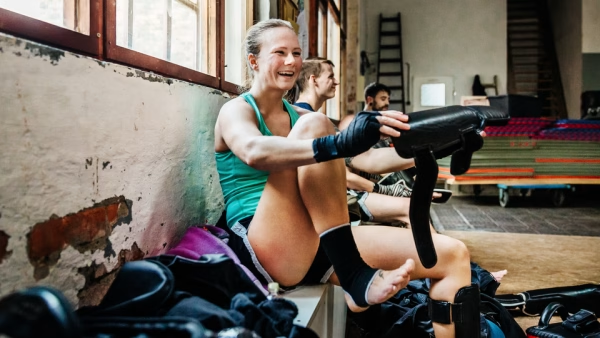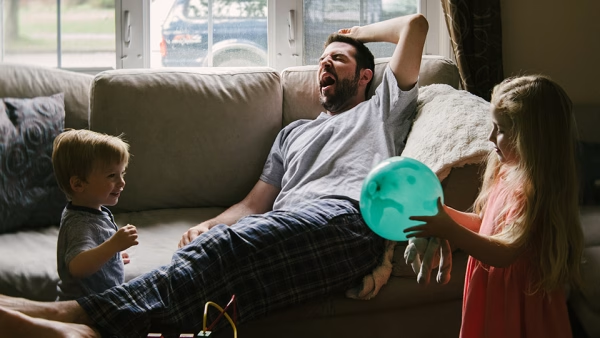
The benefits of private health insurance
Concierge services and discounts - just to name a few

Why it's important to review your health insurance
Does your health insurance match your needs and lifestyle?

Switching Health Insurance – What You Need To Know
We answer the biggest questions you have about switching

5 health insurance questions that could save you money
Get the best value from your cover with our five questions

How to get the most out of your nib health cover
The shortcuts you need to get the most out of your cover
Health Cover
Maximise your health insurance benefits
Get the most bang for your buck from your health cover.
A guide to seniors health care cards in Australia
Seniors health care cards can help offset some of your healthcare costs.
Changing your excess: How to reduce the cost of your health insurance premium
More options when it comes to your maximum excess limits
The benefits of private health insurance
Concierge services and discounts - just to name a few
Private vs Public Health Insurance: A tale of two medical emergencies
Private vs public: two very different hospital experiences.
Tax time and getting health insurance
Did you know private health insurance can help lower how much tax you pay? While health insurance isn’t tax deductible, there may be tax benefits you can take advantage of when you have private health cover.
Why do I need private health insurance?
Private health cover helps fill in the gaps Medicare leaves
Why it's important to review your health insurance
Does your health insurance match your needs and lifestyle?
Read more from
Health CoverBody
6 easy ways to achieve daily exercise goals
These expert tips will help you get moving every day
6 health benefits of exercise you may not know about
Exercise helps more than just your physique.
How to maintain your fitness routine while travelling
Whether it’s for work or play, travel doesn't have to mean letting your health goals slide.
Common fitness myths debunked
We sort fact from fiction, with help from the expert
10 facts about physical fitness you didn't know
We get the inside story on exercise myths
Muscle building diet
Expert spills the top tips for building muscle through food
Read more from
BodyMind
Lacking in energy? Your night-time routine could be to blame
Are you doing all the right things, but still feeling tired?
How does sleep affect the wellbeing of teenagers?
Experts from Black Dog Institute explain the vital role of sleep in teenagers' health and wellbeing.
12 tips for getting a better night’s sleep
Struggling to get a good night’s sleep? You’re not alone
Why you’re still tired after a good night’s sleep
Tired of waking up tired? Give your energy levels a boost
8 ways to support a loved one with mental illness
When a loved one is struggling, do you know what to say?
What is serotonin and how do I increase it?
Known as the happiness chemical, it helps regulate our mood
5 ways to improve your mental wellbeing in under 5 minutes
Here are a few simple things you can do to relax and refocus
Why is prevention better than cure?
When it comes to our health, prevention is better than cure
Read more from
MindFood
Everything you need to know about high protein food
Learn about the benefits of high protein foods, with expert dietician tips for different dietary preferences and goals.
How to fuel your body in your 20s, 30s and beyond
Learn how to up your intake of healthy foods on a budget
What fruits & vegetables are in season in summer?
The fruit and vegetables to put on your menu this season
How to become a better cook
It’s never too late to learn new cooking techniques!
Staying healthy on a budget this winter
Boost your immune system this winter without spending big
Gluten: Good or Bad?
We talk to the experts to get the final word on this fad
Organic vs non-organic food: what's the difference?
Here's what the experts say
Read more from
FoodLifestyle
How a heart health check can save your life
Most heart attacks and strokes are preventable
Getting headaches? Here’s what you need to know about eye strain
Here are some tips on relieving your eye strain symptom from an optometrist.
8 healthy habits to start in your 30s
It's the perfect time to lay the foundations of good health
8 ways to keep healthy in your 40s
Ditch the diet and start making some simple life changes
9 healthy habits to start in your 20s
The 40-something version of yourself will thank you later.
What is UV Damage and how does it affect your eyes?
It's not just ongoing UV exposure that can damage your eyes
The whooping cough vaccine: what you need to know
Here's what you need to know about the whooping cough vaccine
The Shingles Vaccine: What You Need To Know
Getting vaccinated against shingles is an effective way to prevent serious illness caused by the shingles virus. Here are the facts around the vaccine.
Read more from
LifestyleInternational students: What do I do if I’m taken to hospital?
What would happen if you required emergency treatment?
Going to hospital and seeking medical advice in Australia
Rest easy knowing you’ll be looked after in Australia
What do I do if I get sick while I’m in Australia?
Navigating the Australian medical system if you fall ill










































